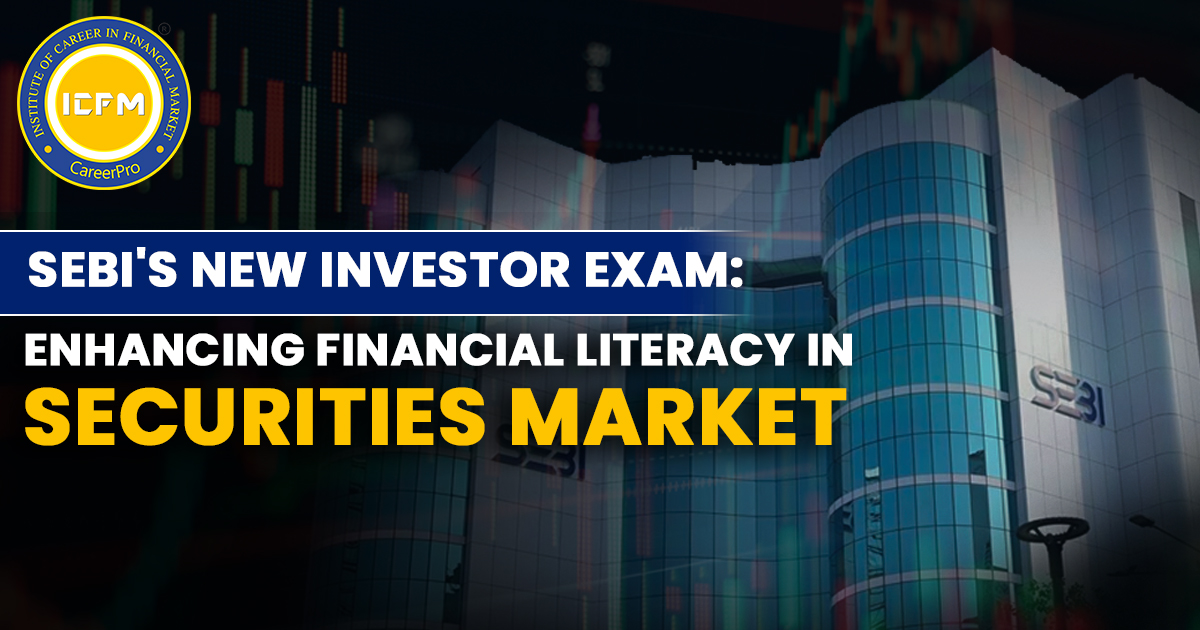In a significant move to bolster financial literacy and investor protection, the Securities and Exchange Board of India (SEBI) has introduced a new investor exam. This initiative aims to educate and empower investors, enabling them to make informed decisions in the dynamic securities market. Additionally, SEBI's focus extends to raising awareness about Real Estate Investment Trusts (REITs) and Infrastructure Investment Trusts (InvITs), highlighting their potential as lucrative investment avenues. This article delves into the details of SEBI's new exam, its implications for financial literacy, and the broader impact on the securities market.
Understanding SEBI's Investor Exam
Purpose and Objectives
SEBI's investor exam is designed to enhance the financial literacy of market participants. The primary objective is to equip investors with the knowledge and skills necessary to navigate the complexities of the securities market. By doing so, SEBI aims to reduce instances of fraud, mis-selling, and poor investment decisions that often result from a lack of understanding.
Structure and Content
The exam covers a broad spectrum of topics related to the securities market, including basic concepts of investing, risk management, market operations, and regulatory frameworks. It also includes modules on REITs and InvITs, providing comprehensive insights into these investment vehicles. The content is structured to cater to both novice and experienced investors, ensuring a wide range of market participants can benefit.
Eligibility and Registration
The exam is open to all investors, irrespective of their prior knowledge or experience in the securities market. SEBI has made the registration process simple and accessible, with online and offline options available. The exam fee is nominal, reinforcing SEBI's commitment to making financial literacy accessible to everyone.
The Importance of Financial Literacy
Empowering Investors
Financial literacy is crucial for empowering investors to make informed decisions. By understanding the intricacies of the securities market, investors can evaluate investment opportunities, assess risks, and develop strategies that align with their financial goals. SEBI's investor exam is a significant step towards fostering a culture of informed investing.
Reducing Investment Risks
A well-informed investor is less likely to fall victim to fraud or mis-selling. By enhancing financial literacy, SEBI aims to reduce the prevalence of investment scams and poor financial decisions that can have devastating consequences for investors. The exam provides the knowledge needed to identify red flags and make prudent investment choices.
Promoting Market Stability
Financially literate investors contribute to a more stable and efficient market. They are better equipped to understand market dynamics, respond to fluctuations, and maintain confidence during periods of volatility. SEBI's initiative is expected to enhance market stability by fostering a more knowledgeable and resilient investor base.
Spotlight on REITs and InvITs
What are REITs and InvITs?
Real Estate Investment Trusts (REITs) and Infrastructure Investment Trusts (InvITs) are investment vehicles that allow individuals to invest in large-scale real estate and infrastructure projects without having to own the assets directly. REITs focus on commercial real estate, while InvITs target infrastructure projects such as highways, power transmission, and telecom towers.
Benefits of Investing in REITs and InvITs
Investing in REITs and InvITs offers several advantages. Firstly, they provide regular income through dividends, making them attractive for income-focused investors. Secondly, they offer diversification benefits, allowing investors to spread risk across multiple assets. Lastly, REITs and InvITs are traded on stock exchanges, providing liquidity and ease of access.
SEBI's Role in Promoting REITs and InvITs
SEBI has been proactive in promoting REITs and InvITs as viable investment options. By including modules on these investment vehicles in the investor exam, SEBI aims to raise awareness and educate investors about their potential. This initiative is expected to boost participation in REITs and InvITs, contributing to the growth of the real estate and infrastructure sectors.
Implications for the Securities Market
Enhanced Investor Protection
SEBI's investor exam is a robust tool for enhancing investor protection. By equipping investors with essential knowledge, SEBI aims to create a more transparent and fair market environment. This initiative aligns with SEBI's broader mandate of safeguarding investor interests and promoting market integrity.
Increased Participation
Enhanced financial literacy is likely to lead to increased participation in the securities market. As investors become more confident and informed, they are more likely to explore diverse investment opportunities. This increased participation can drive market growth and contribute to the overall development of the financial ecosystem.
Long-Term Benefits
The long-term benefits of SEBI's investor exam extend beyond immediate financial literacy. By fostering a culture of informed investing, SEBI is laying the groundwork for sustainable market growth. Educated investors are more likely to stay invested for the long term, contributing to market stability and economic development.
Conclusion
SEBI's new investor exam marks a significant step towards enhancing financial literacy and investor protection in the securities market. By educating investors about key concepts and emerging investment opportunities like REITs and InvITs, SEBI aims to empower market participants and promote a more resilient and dynamic market. The long-term benefits of this initiative are expected to be far-reaching, fostering a culture of informed investing and contributing to the overall growth and stability of the financial ecosystem.









